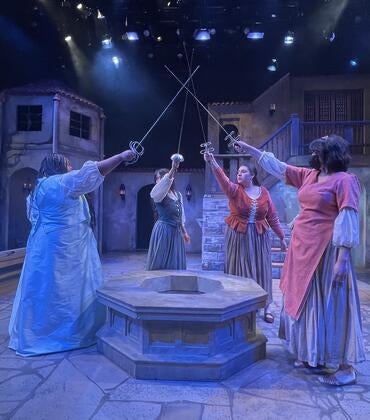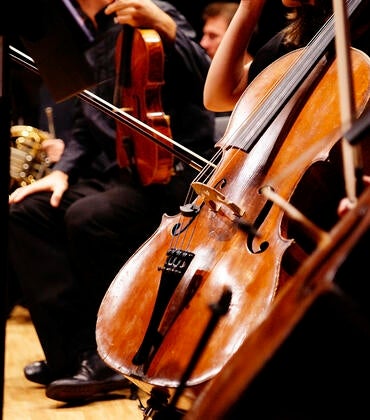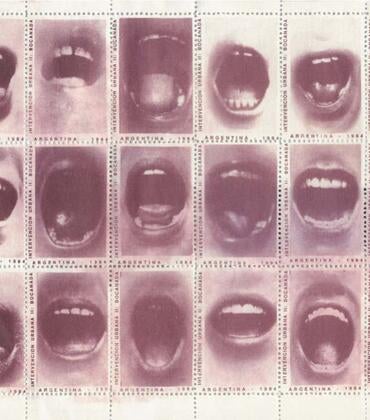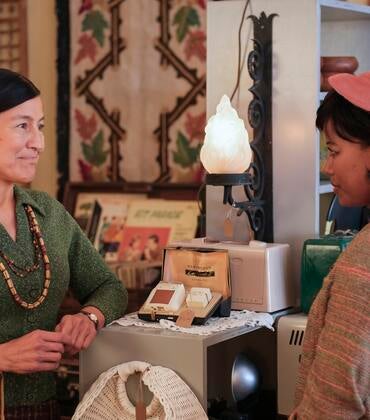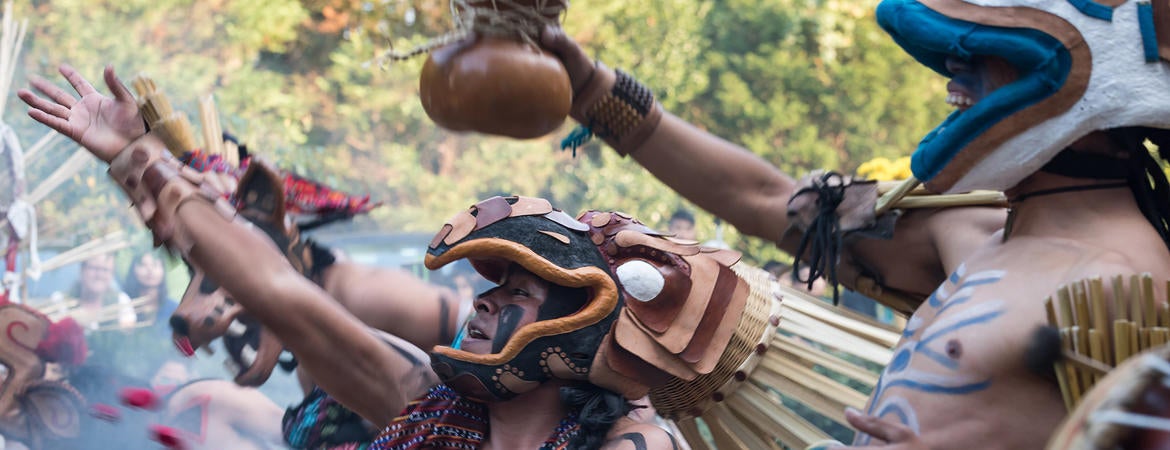
Indigenous dancers from across the globe will unite at the University of California, Riverside for a two-week interdisciplinary dance experience.
Dance artists from Guatemala, Mexico, New Zealand, and the United States will offer dance performances and workshops at the seventh-annual Indigenous Choreographers at Riverside Gathering(ICR) set to take place from April 27 to May 6. All events are free and open to the public.
The annual ICR event is meant to create a space where indigenous dance artists can come together to share work, connect with each other, and – along with invited scholars, UCR students, and community members – discuss the social, political, and historical implications of indigenous dance, said UCR’s Jacqueline Shea Murphy, ICR’s creator and associate professor of critical dance studies in UCR’s Department of Dance. This year’s two-week ICR gathering is being produced in collaboration with the annual UCR Native American Student Program’s annual Medicine Ways Conference.
Shea Murphy is co-directing this year’s event with María Regina Firmino-Castillo, assistant professor in UCR’s Department of Dance, and with the guidance of Jack Gray and Rulan Tangen, world renowned indigenous dance leaders.
This year’s featured artist is Grupo Sotz’il, a Guatemalan eight-member Kaqchikel and Mam Maya music and dance collective formed in 2000. These eight members created Grupo Sotz’il as a way to strengthen knowledge and arts, two components the artists say have been suppressed in Guatemala since the Spanish invasion in 1524, and through decades of recent genocidal and neocolonial violence against Guatemala’s 24 indigenous nations. The internationally renowned group presents multi sensory dance works that reflect the present and envision the future, while being firmly rooted in the knowledge of their ancestors. The group has won many awards, and recently performed at the Smithsonian National Museum of the American Indian. Their presentation at UCR is part of an international project funded by New England Foundation for the Arts National Dance Project with its prestigious annual touring award.
Grupo Sotz’il will be in residence at UCR for two weeks performing original dance and music, offering workshops, and participating in the ICR’s scholarly dialogues.
The 2018 ICR program opens with a video screening, lecture-demonstration, and conversation with Grupo Sotz’il on Friday, April 27, at 7 p.m. at the Culver Center of the Arts in downtown Riverside.
On Thursday, May 3, 6:30 p.m., also at the Culver, Grupo Sotz’il members will take part in a dance and ceremony exchange with invited national and international dance artists, including: Will Madrigal and the Mountain Cahuilla Bird Singers; Lukas Avendaño; Louise Potiki Bryant; Jack Gray; Sam Mitchell; Rulan Tangen; and Ni’Ja Whitson. Among the invited artists’ recent honors are UCR assistant professor Ni’Ja Whitson’s 2017 Bessie Award, Rulan Tangen’s 2018 Kennedy Center Citizen Artist Fellow Recognition Award, and New Zealand-based Louise Potiki Bryant’s 2016 Harriet Friedlander Residency. Potiki Bryant is also a visiting assistant professor in the UCR Dance Department this spring.
Colloquia, workshops, and lecture-demonstrations scheduled as part of this year’s ICR gathering include a writers workshop on Friday, April 4. This day-long event will bring renowned indigenous dance artists and scholars, including choreographer Emily Johnson and scholar Karyn Recollet, to campus to work together on a proposed new anthology on Critical Indigenous Dance Studies.
These events culminate on May 5 at 6 p.m. when Grupo Sotz’il will perform “Uk’u’x Ulew: Heart of Earth” at UCR’s R’Garden near lot 30. This 60-minute original performance and ritual will feature fire, water, earth, and air simultaneously interacting in harmony and conflict. From their collusion and collision, K’aslemal, life, is born.
Shea Murphy envisioned and started building the ICR project many years ago. Noting how indigenous perspectives were largely omitted in the emerging field of dance studies, despite the influence of indigenous dance in modern dance, moved Shea Murphy to dedicate her research to critical indigenous dance studies and to create spaces such as the ICR.
“ICR grew from my having that sense that, even though throughout my adult life I had only been taught one way of seeing the world, what had been presented to me as truth was in fact far from it,” said Shea Murphy, who has engaged with indigenous dance for more than 20 years.
View the full schedule: icr.ucr.edu/2018-schedule
